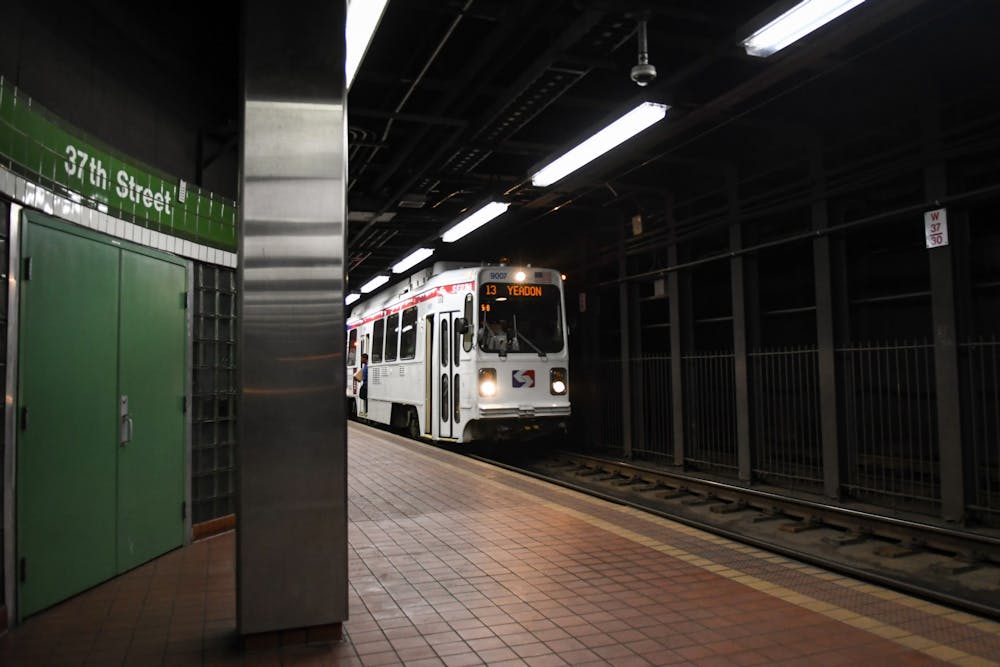
SEPTA now does not require passengers to wear face coverings.
Credit: Sukhmani KaurA viral video of Philadelphia police officers forcibly removing a passenger without a face mask from a SEPTA bus prompted mass backlash on social media earlier this month – but SEPTA has since reversed its policy and asserted that masks are not, in fact, required on public transportation.
A SEPTA representative explained in an emailed statement to The Daily Pennsylvanian that the organization initially required riders to wear "facial coverings" beginning April 9, but that this "policy will no longer be enforced." While SEPTA still urges passengers to wear face coverings, the representative clarified "those who refuse will not be barred entry to the system."
SEPTA will also distribute around 20,000 surgical masks to riders on select buses, trains, and transportation hubs, according to WHYY.
The viral video, which received over 11 million views on Twitter, shows police officers dragging a passenger without a mask from a bus despite his protests. According to police, the man was neither arrested nor cited, The Philadelphia Inquirer reported. Another video shows an unidentified man ordering passengers off a bus who do not have masks or who are wearing make-shift face coverings.
Philly Transit Riders Union, a non-profit that supports Philadelphia transit riders and workers, posted these videos onTwitter and denounced SEPTA's unclear policies in a press release. The group called upon the SEPTA to provide passengers with face masks and "ensure any interaction with police does not end in violence."
Nat Lownes, a Philly Transit Riders Union committee member, said the organization encouraged over 400 people to contact the Philadelphia Police Commissioner and the SEPTA general manager to express their unhappiness with the forcible removal of passengers and vague policies in place surrounding requirements for riders.
Lownes believes SEPTA should act in the best interest of the public health but is frustrated with the lack of consistency and clarity in SEPTA's policies. He added that unclear policies led to unnecessary confusion, and worries that physical altercations with police officers increase the probability of virus transmission.
"They were saying different things to different people," Lownes said. "They're putting people's lives at risk by not being clear what the policy is."
Though SEPTA's mask requirement is not mandatory, Assistant Professor of City and Regional Planning in the School of Design Erick Guerra thinks it should be. He said the implementation of and adherence to policies designed to mitigate the spread of COVID-19 are essential in preventing further illness. Guerra compared people who don't wear masks in public to anti-vaxxers and believes the police were justified in removing the un-masked passenger in the viral video.
"At this point, if you're unwilling to wear a mask, you shouldn't be on transit," he said.
In an attempt to reduce COVID-19 transmission, SEPTA implemented a new "Lifeline Service Schedule" on April 9 that greatly reduces the stops and frequency of its public transit. SEPTA has also discouraged passengers from using its services for nonessential trips in order to protect the health and safety of transit and essential workers. These changes come after at least three SEPTA employees died from COVID-19.
Although Philadelphians do not have to wear masks on public transport, all customers in the state are required to wear masks or face coverings while visiting essential businesses as of April 19, in accordance with recommendations from the United States Centers for Disease Control.
At the time of publication, there are 32,284 confirmed COVID-19 cases in Pennsylvania, with more than 9,214 in Philadelphia alone. The city has also seen 365 coronavirus-related deaths.
Guerra highlighted the importance of such policies during the pandemic and stressed it is crucial to follow social distancing and other health precautions.
"At the end of the day, we either care more about individual's freedoms or we care more about collective public health," Guerra said. "And I think in moments like this, it's really a time to care about collective public health."
The Daily Pennsylvanian is an independent, student-run newspaper. Please consider making a donation to support the coverage that shapes the University. Your generosity ensures a future of strong journalism at Penn.
Donate







